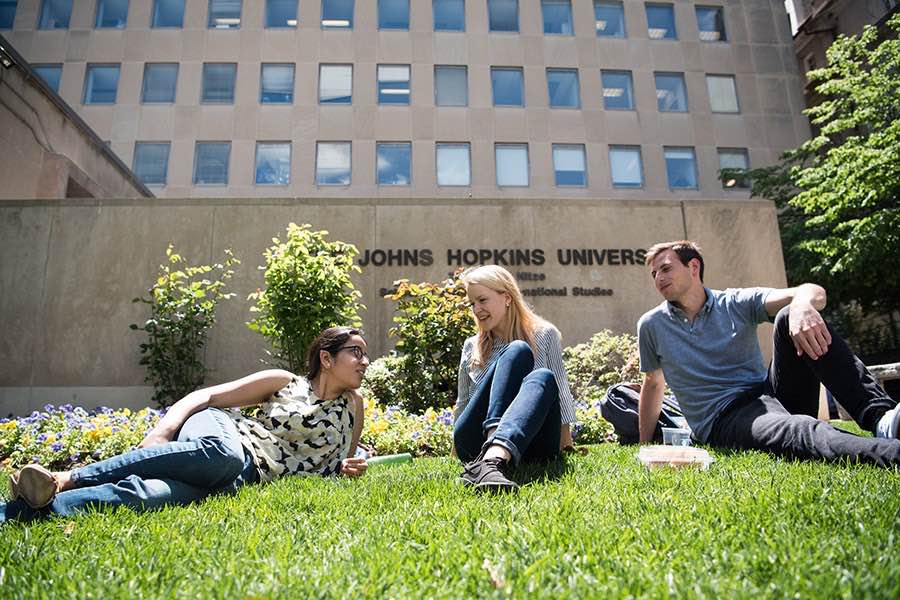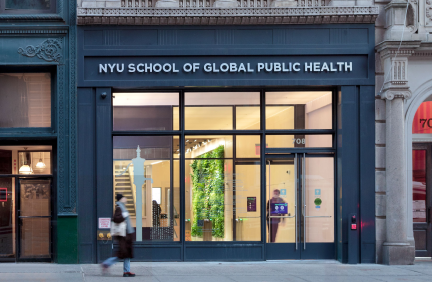Postdoctoral Scholars & Trainees
Global Health Established Field Placement
Global Health Established Field Placement (GHEFP) awards were developed to inspire students to enter into global health research and practice careers by providing international cross-cultural field experience. This program is a great opportunity for graduate students at Johns Hopkins to gain international experience in low- and middle-income countries.
The Center for Global Health Equity is an established GHEFP site that can provide placement for students with various research interests.

For more information regarding GHEFP and application, please refer to the Johns Hopkins Center for Global Health webpage.
NYU School of Global Public Health
The Center for Global Health Equity can also host PhD students from the NYU School of Global Public Health and for more information, please contact Prof. Brian Hall.

For Current Students
Undergraduate Global Health Student Organization
The CGHE UG Global Health Student Organization provides a platform for students to learn about current global health challenges and innovations. Through seminars, workshops, reading group discussions, research symposiums, and volunteer and internship opportunities, we engage students in understanding global health issues. We welcome and encourage students from all majors to get involved. Students interested in joining can contact Brian Hall at brianhall@nyu.edu

Fall 2024 Course Offerings
SOCS-SHU 170 Introduction to Global Health
This course provides an introduction to current challenges in global public health. The central concepts and tools will be introduced, and health policies and health systems will be analyzed in different environments. We will discuss the role of demographics, geography, and socio-economic factors like income, resources and infrastructures disparities. We will discuss in depth a few important case studies, such as the rise of life expectancy and the epidemiological transition, and aging and global health, underline the role of environmental factors in global health, and discuss the new trends of global health for the immediate future.
Pre-requisite: None. Fulfillment: CORE STS; Social Science Foundational course.
SOCS-SHU 294 Infectious Diseases: From Pathogen to Pandemic
In an increasingly globalized world, the prevention and control of infectious diseases is becoming exceptionally complex. Emerging social, political and demographic changes in our population as well as dynamic changes in animal and vector populations and the environment have developed the prevention and control of infectious diseases into a multifaceted issue leading to new global challenges. Particularly concerning are new and re-emerging infectious diseases of pandemic potential (e.g., COVID-19) or of regional critical importance (e.g., Ebola). In this course, we will discuss and analyze the impact of infectious diseases from a geopolitical, economic, social, and environmental perspective, including governance preparedness, pandemic response, and policies in a post-COVID 19 world.
Prerequisite: SOCS-SHU 170 – Introduction to Global Health Fulfillment: Social Science Global Public Health Focus 200 level course.
Spring 2025 Course Offerings
SOCS-SHU 294 Infectious Diseases: From Pathogen to Pandemic - Spring 2025
The COVID-19 pandemic showed the world the potential of infectious diseases to greatly impact the social, political and economic stability of countries, regions, and even the world. In an increasingly globalized world, the prevention and control of new and re-emerging infectious diseases of pandemic potential and regional importance is becoming exceptionally complex. Social, economic, political, and demographic factors in our population as well as dynamic changes in animal and vector populations and the environment have led the prevention and control of infectious diseases into a multifaceted and intersectoral issue leading to new global challenges. In this course, we will discuss and analyze the impact of infectious diseases from a geopolitical, economic, social, and environmental perspective, including governance preparedness, outbreak response, and policies in a post-COVID-19 world.
Fall 2025 Course Offerings
SOCS-SHU 315 Program Development & Evaluation - Fall 2025
This course provides an overview of the models, concepts, and skills used for the identification of population-based needs for public health intervention, development of programs to meet those needs, and evaluation of the effectiveness of these public health interventions. The course will follow the program planning framework for evidence-based public health programs in a global setting. Students will learn how to conduct needs assessments, develop logic models for planning programs based on community needs, identify goals and objectives that can serve as a foundation for program evaluation, and recognize models and procedures for evaluating community health programs.
SOCS-SHU 262 Digital Health, Digital Interventions - Spring 2025
This course provides a landscape introduction to the burgeoning field of digital health and relevant interventions. From mobile applications and telehealth to virtual reality, artificial intelligence, and big data, the course presents a bird's eye-view to the emerging technologies poised to reshape public health and healthcare systems globally. Students will be presented with case studies from the leading researchers and entrepreneurs in the field and be guided to assess digital health technologies in terms of their opportunities and challenges to address real-world public health and healthcare challenges. Students will explore themes including ethical considerations, privacy concerns, accessibility, and the socio-economic and political factors influencing the development and implementation of digital health technologies. Towards the end of the course, students will participate in a fictional hackathon, gaining insights into the opportunities and challenges of digital health technologies in addressing real-world public health and healthcare challenges.
Upcoming Courses
Global Public Health Field Experience
This course provides students with hands-on experience in public health research and practice. Partnering with local health organizations, nonprofit organizations, and public health agencies, students are grouped based on their disciplines and interests to design and implement a service project to provide health education and health promotion. Students will engage in service-learning focused on health issues faced by the community, while developing practical skills in project management, data collection and analysis, community outreach, and report writing. To prepare the students for service projects, the course will cover key foundational topics related to service learning, including: the concept and practice of service learning; scientific methods for accessing community health needs, hypothesis formulation, experimentation, data collection and analysis, and ethical considerations related to working with vulnerable populations.

